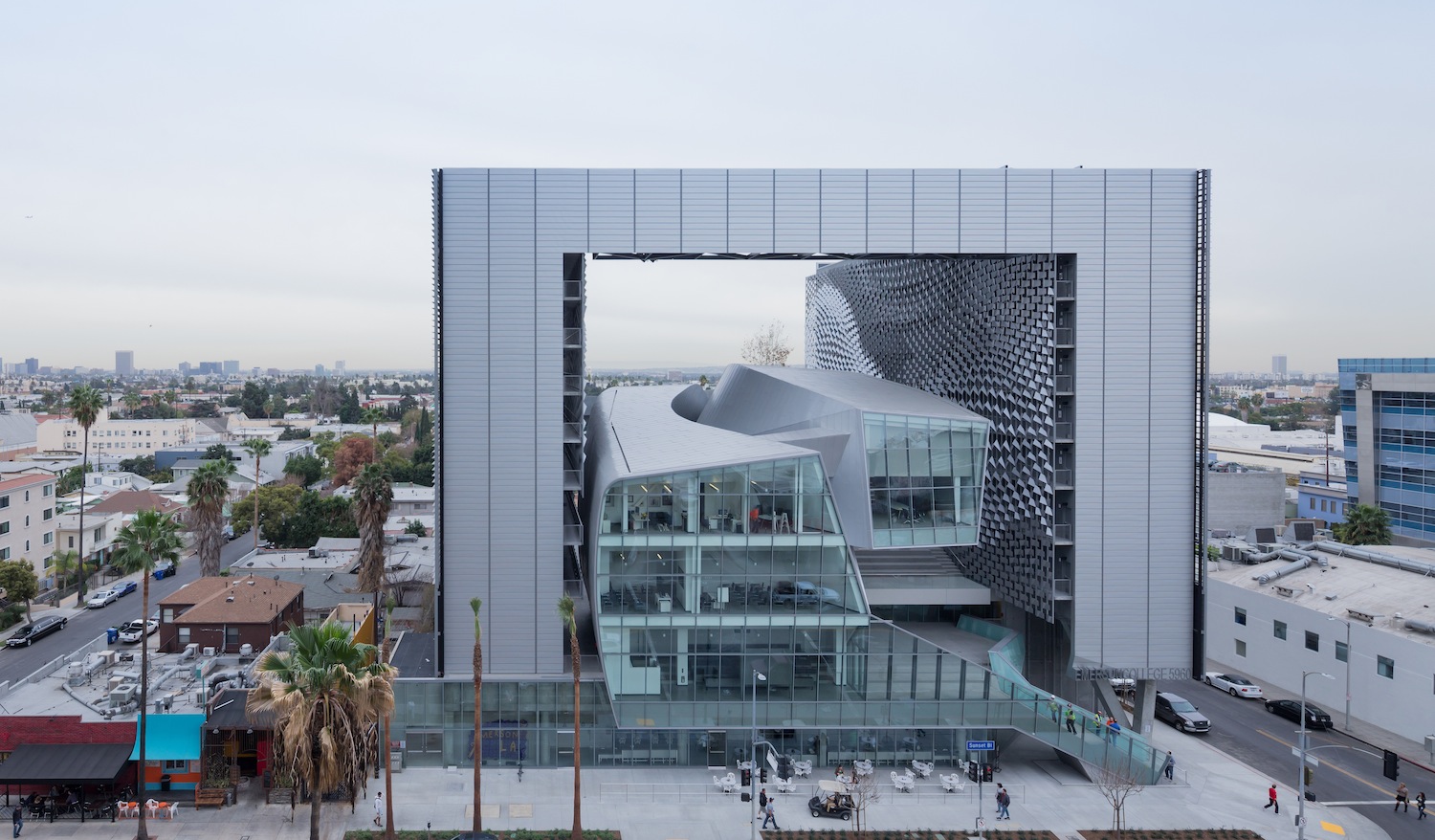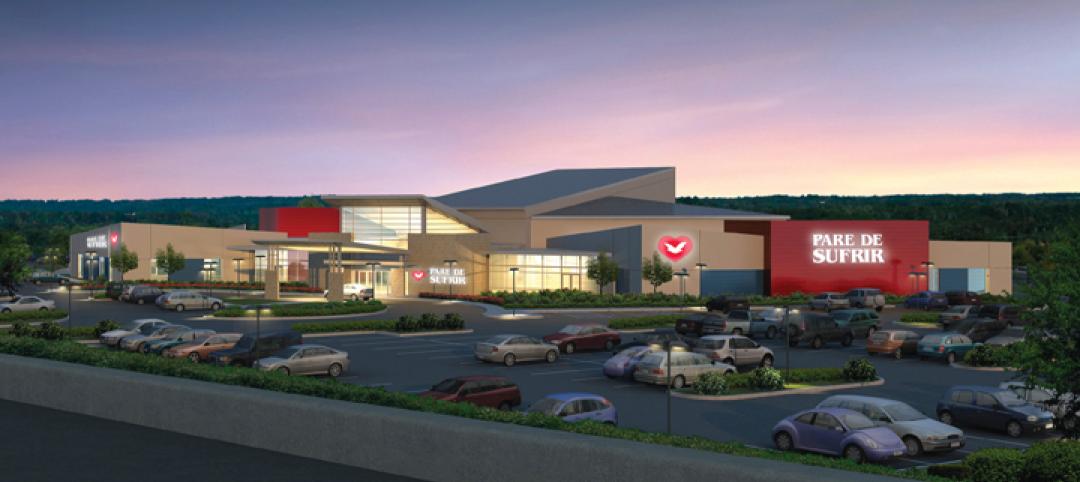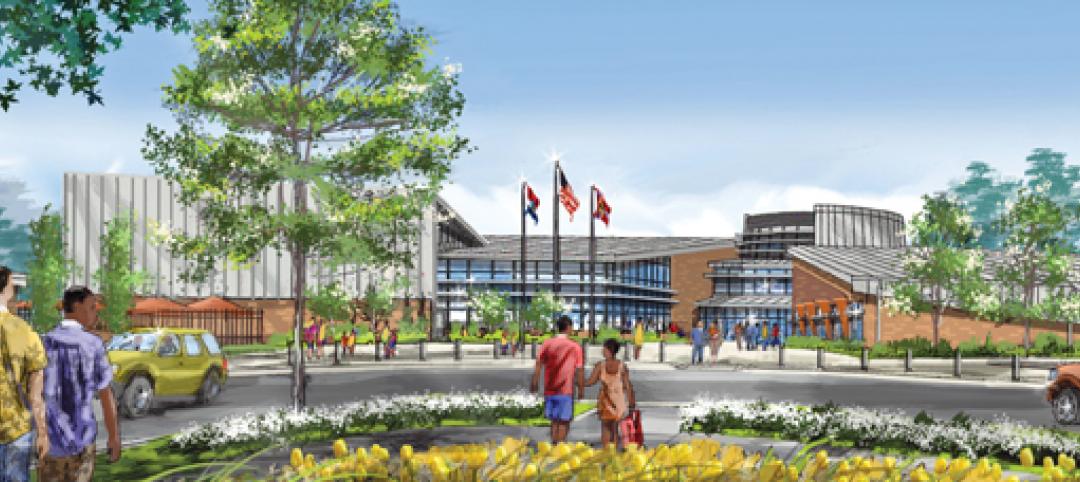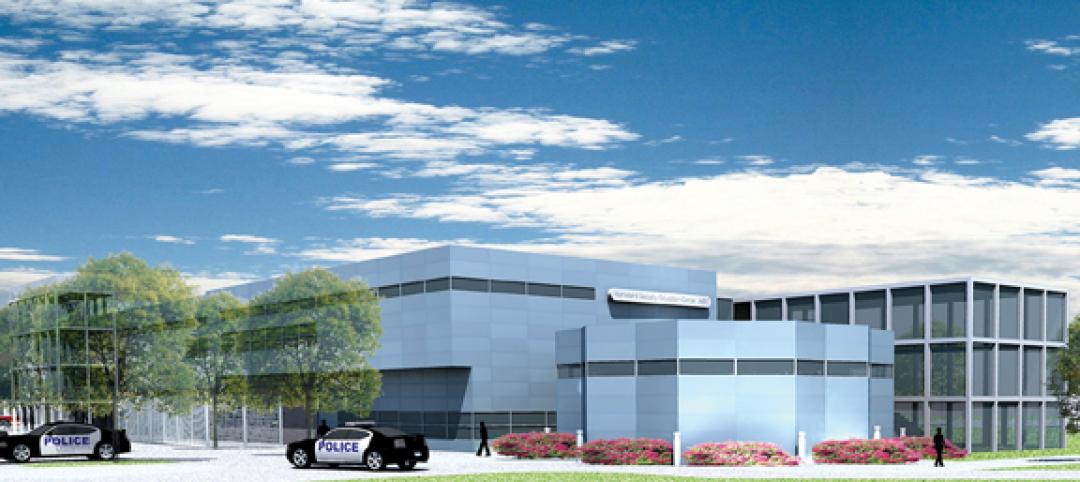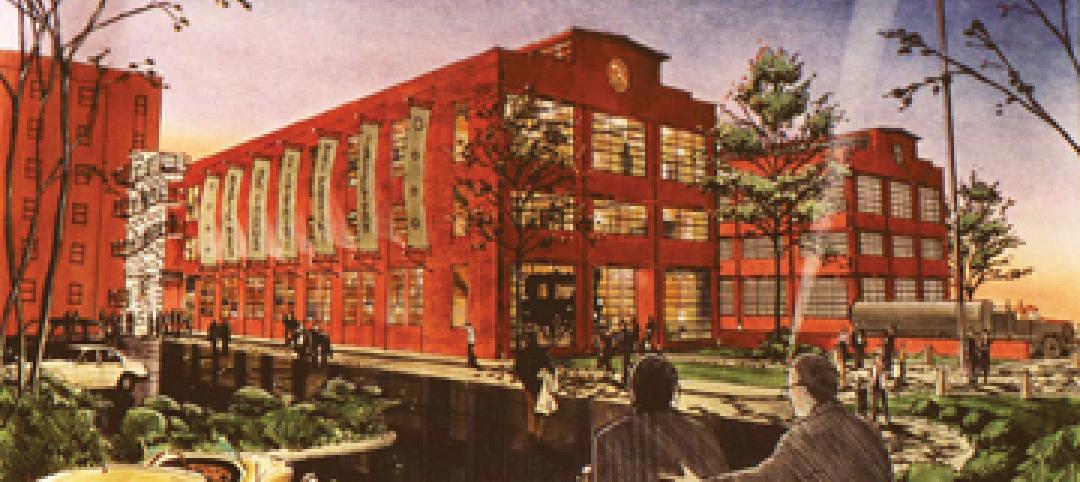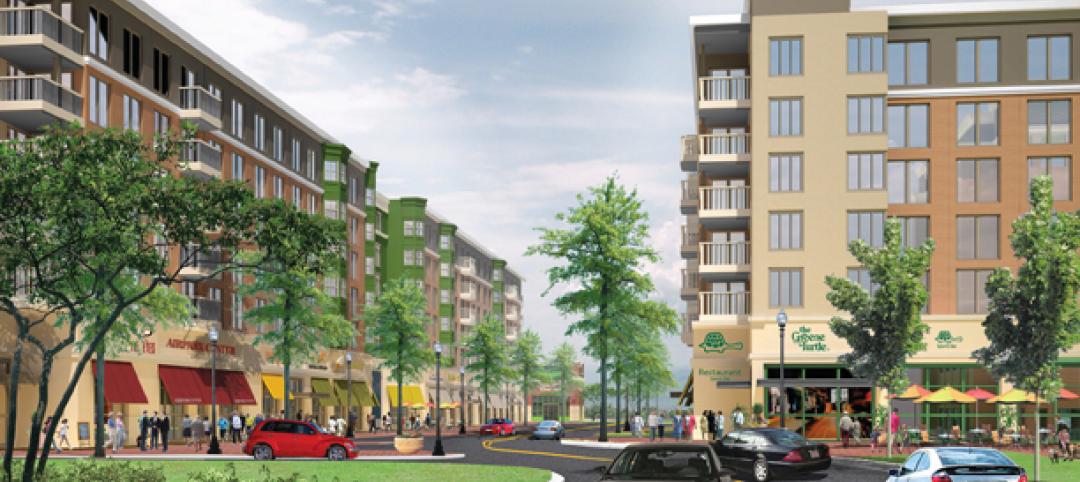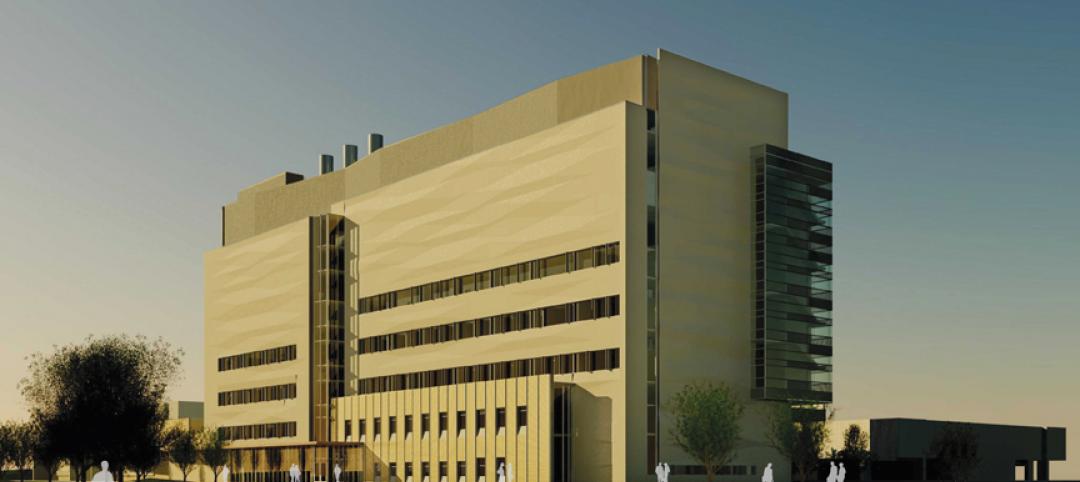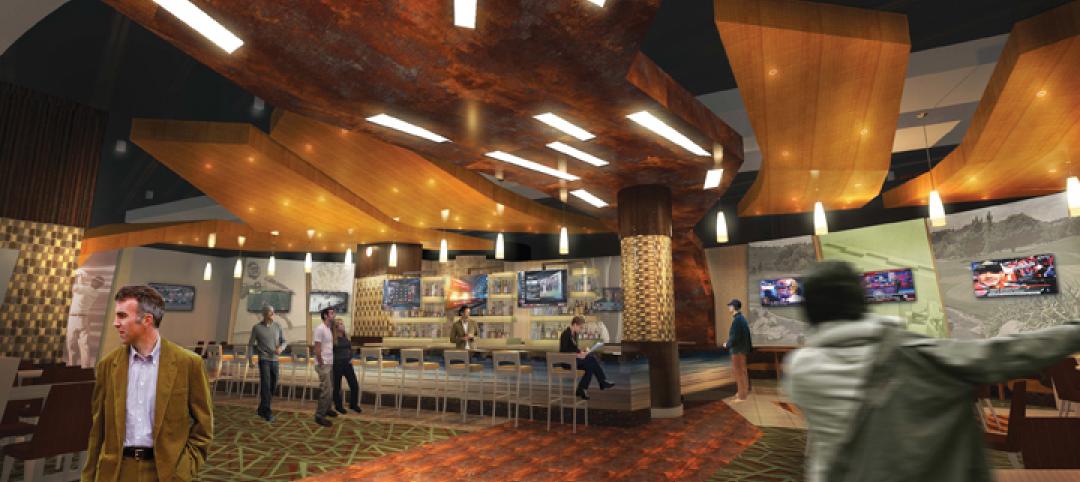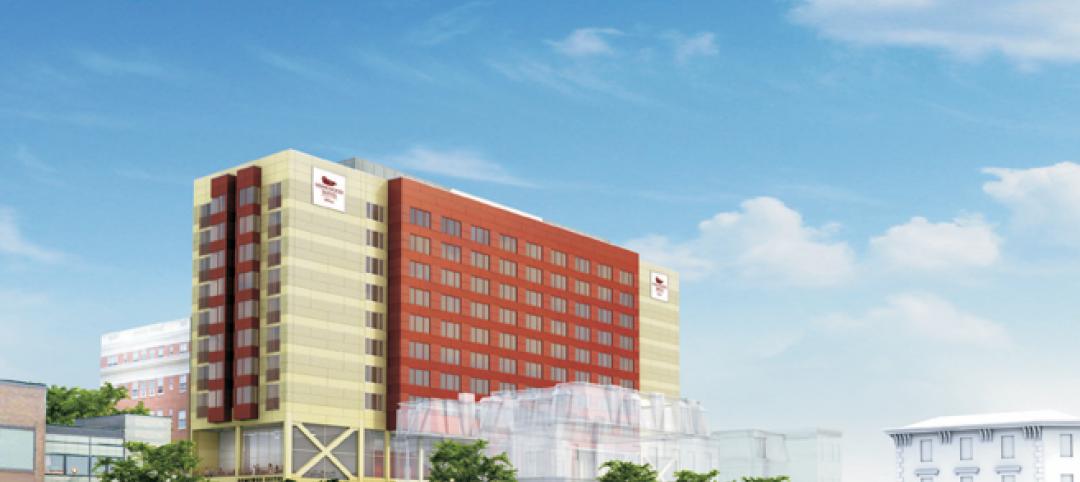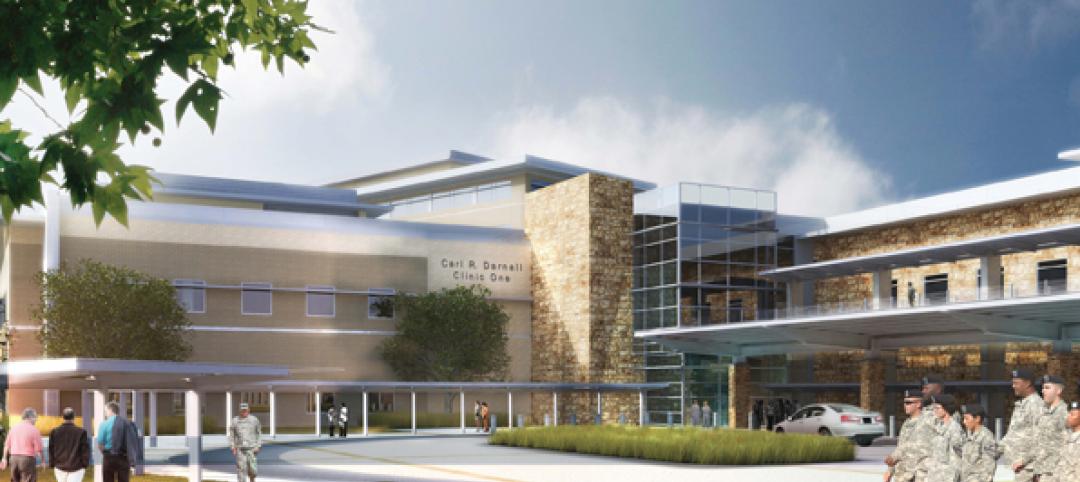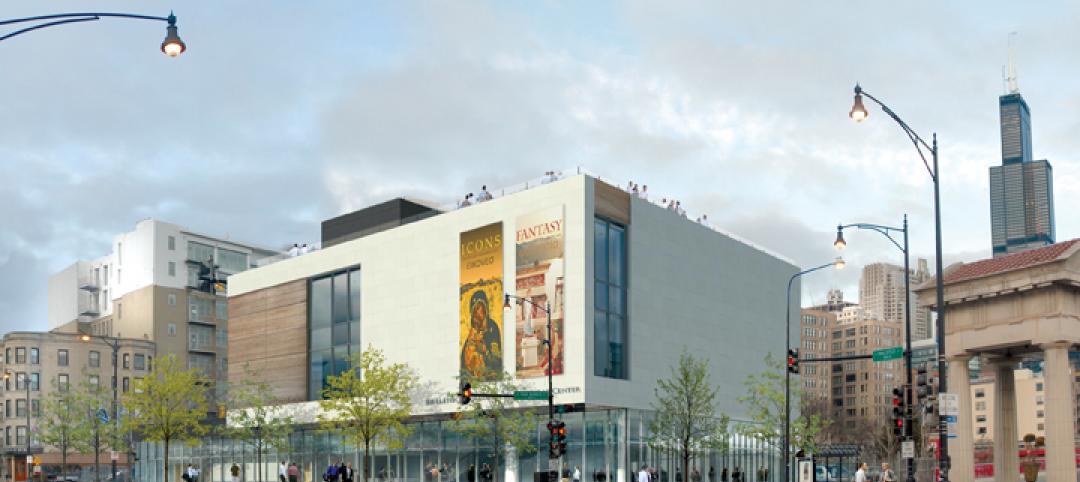Larry David, Maria Menounos, and Sofia Vergara are among the Hollywood elites scheduled to attend a star-studded gala March 8 to celebrate the opening of Emerson College's new $85 million Los Angeles campus building.
Located on Sunset Boulevard, in the heart of LA's entertainment and communications industry, the 10-story, 107,000-sf multipurpose campus can house up to 217 students and includes wired classrooms, an open-air screening and live-performance space, a Dolby Surround 7.1 audio post-production suite, a 4K screening room, computer labs, mixing suites, and a planned green screen motion capture stage.
Design architect Thom Mayne of Morphosis said the building's form, which takes the shape of a massive, shimmering aircraft hangar, housing a sculptural, glass-and-aluminum base building, is designed to "expand the interactive, social aspect of education. We focused on creating with the broader community in mind—both in terms of public space and sustainable design.”
The building’s exterior features a dynamic sun shading system that adapts to changing weather conditions to maintain optimal indoor temperature and natural light levels. Heating and cooling of the building is further optimized through an innovative passive valence system developed by Buro Happold.
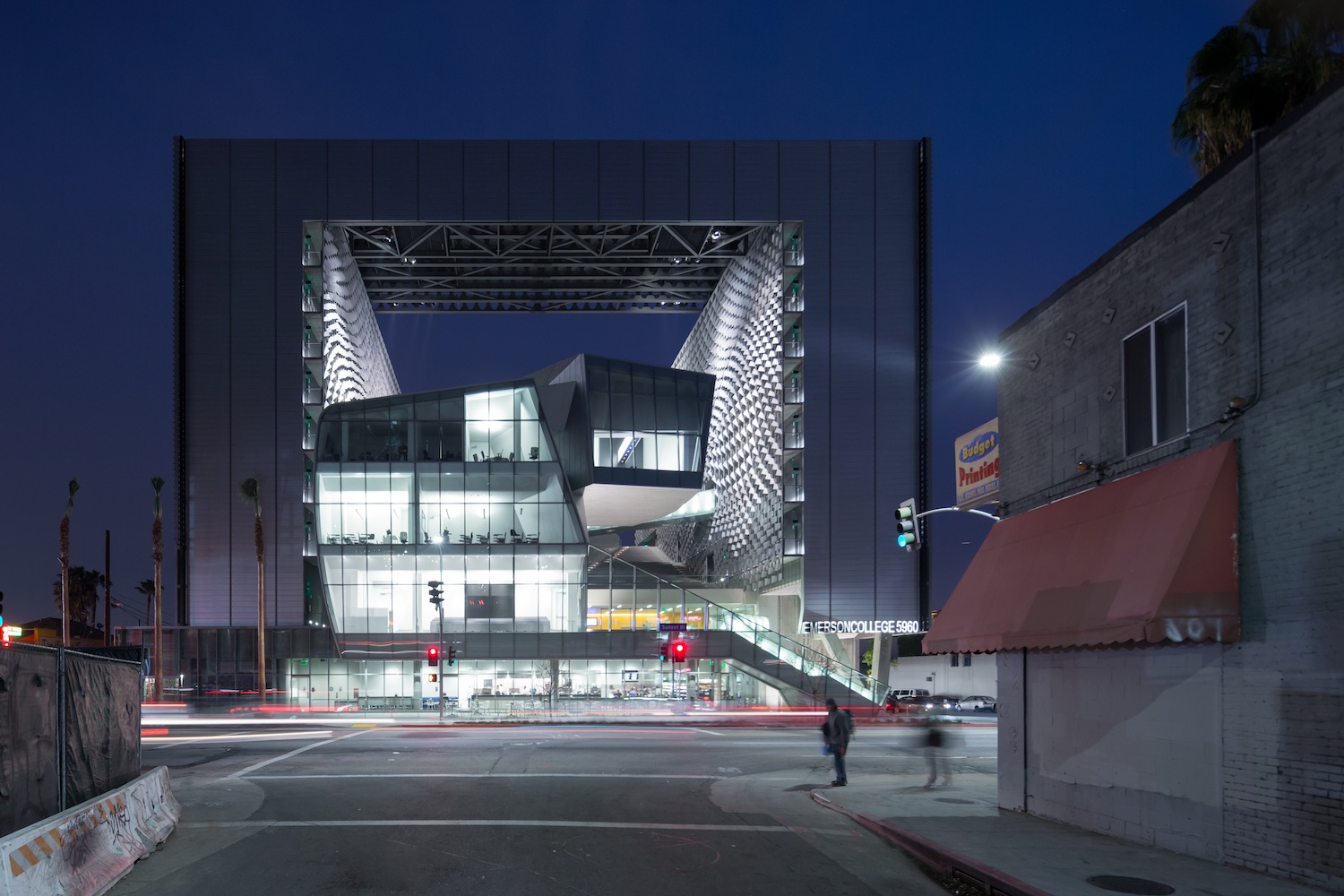
Photo: Iwan Baan - www.iwan.com / Courtesy Emerson College
Additional green design initiatives include: the use of recycled and rapidly renewable building materials; installation of efficient water-saving fixtures; a high-performance glass curtain-wall to minimize heat gain; landscaping and a living green wall; and a central management infrastructure to monitor overall building efficiency.
Morphosis' design statement:
Bringing student housing, instructional facilities, and administrative offices to one location, ELA condenses the diversity of a college campus into an urban site. Evoking the concentrated energy of East-Coast metropolitan centers in an iconic Los Angeles setting, a rich dialogue emerges between students’ educational background and their professional futures.
Fundamental to the Emerson Los Angeles experience, student living circumstances give structure to the overall building. Housing up to 217 students, the domestic zones frame a dynamic core dedicated to creativity, learning, and social interaction. Composed of two slender residential towers connected by a helistop, the 10-story square frame encloses a central open volume to create a flexible outdoor “room.”
A sculpted form housing classrooms and administrative offices weaves through the void, defining multi-level terraces and active interstitial spaces that foster informal social activity and creative cross-pollination. Looking out onto the multi-level terrace, exterior corridors to student suites and common rooms are shaded by an undulating, textured metal scrim spanning the full height of the towers’ interior face.
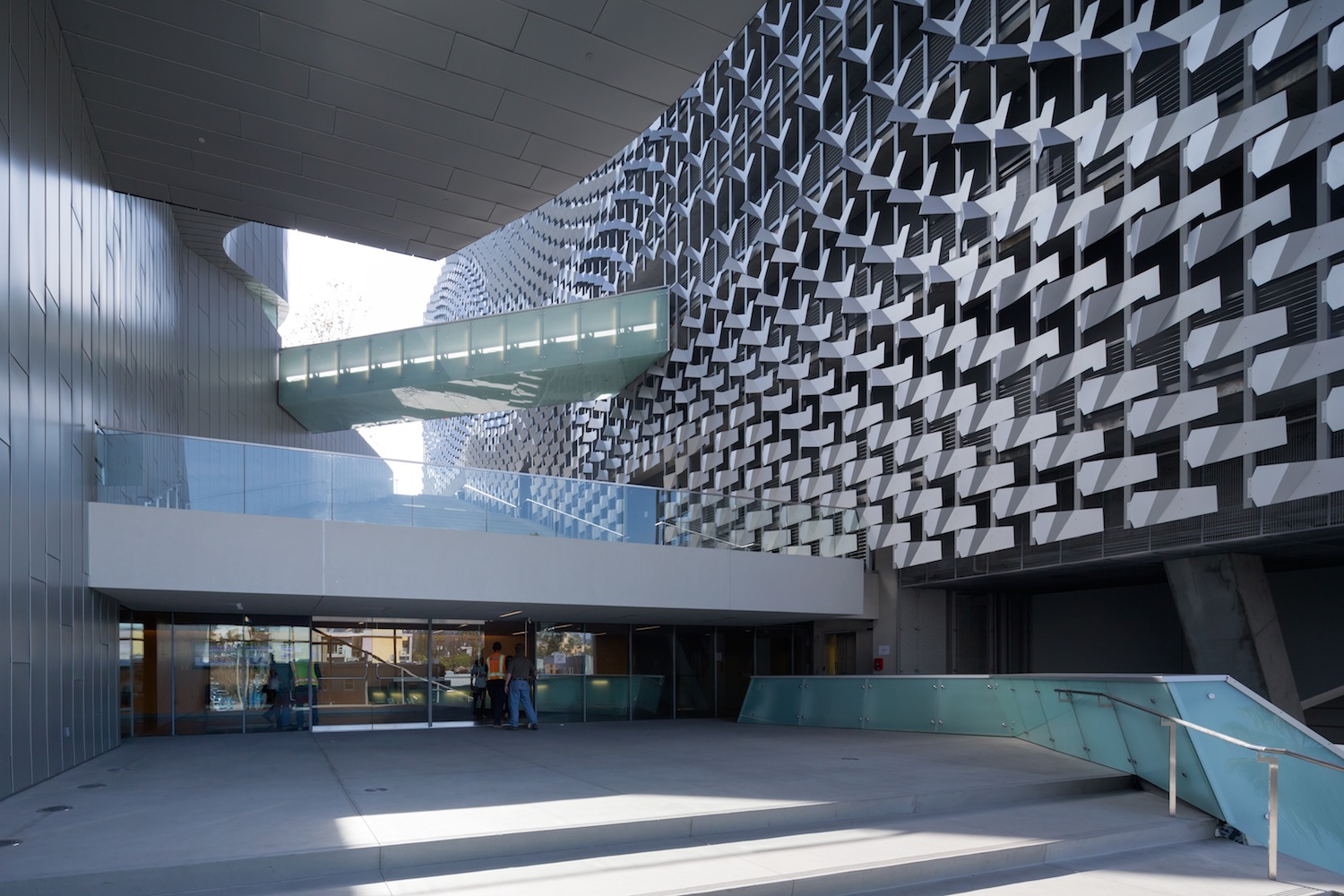
Photo: Iwan Baan - www.iwan.com / Courtesy Emerson College
Looking to the local context, the center finds a provocative precedent in the interiority of Hollywood film studios, where outwardly regular façades house flexible, fantastical spaces within. With rigging for screens, media connections, sound, and lighting incorporated into the façade’s metal framework, this dynamic visual backdrop also serves as a flexible armature for outdoor performances. The entire building becomes a stage set for student films, screenings, and industry events, with the Hollywood sign, the city of Los Angeles, and the Pacific Ocean in the distance providing added scenery.
Anticipated to achieve a LEED Gold rating, the new center champions Emerson’s commitment to both sustainable design and community responsibility. Wrapping the building’s northwest corner, a green wall underscores the towers’ actively changing exterior skin. Connected to weather stations that track the local climate, temperature, and sun angle, the automated sunshade system opens and closes horizontal fins outside the high-performance glass curtain-wall to minimize heat gain while maximizing daylight and views.
Further green initiatives include the use of recycled and rapidly renewable building materials, installation of efficient fixtures to reduce water use by 40%, energy savings in heating and cooling through a passive valence system, and a building management and commissioning infrastructure to monitor and optimize efficiency of all systems.
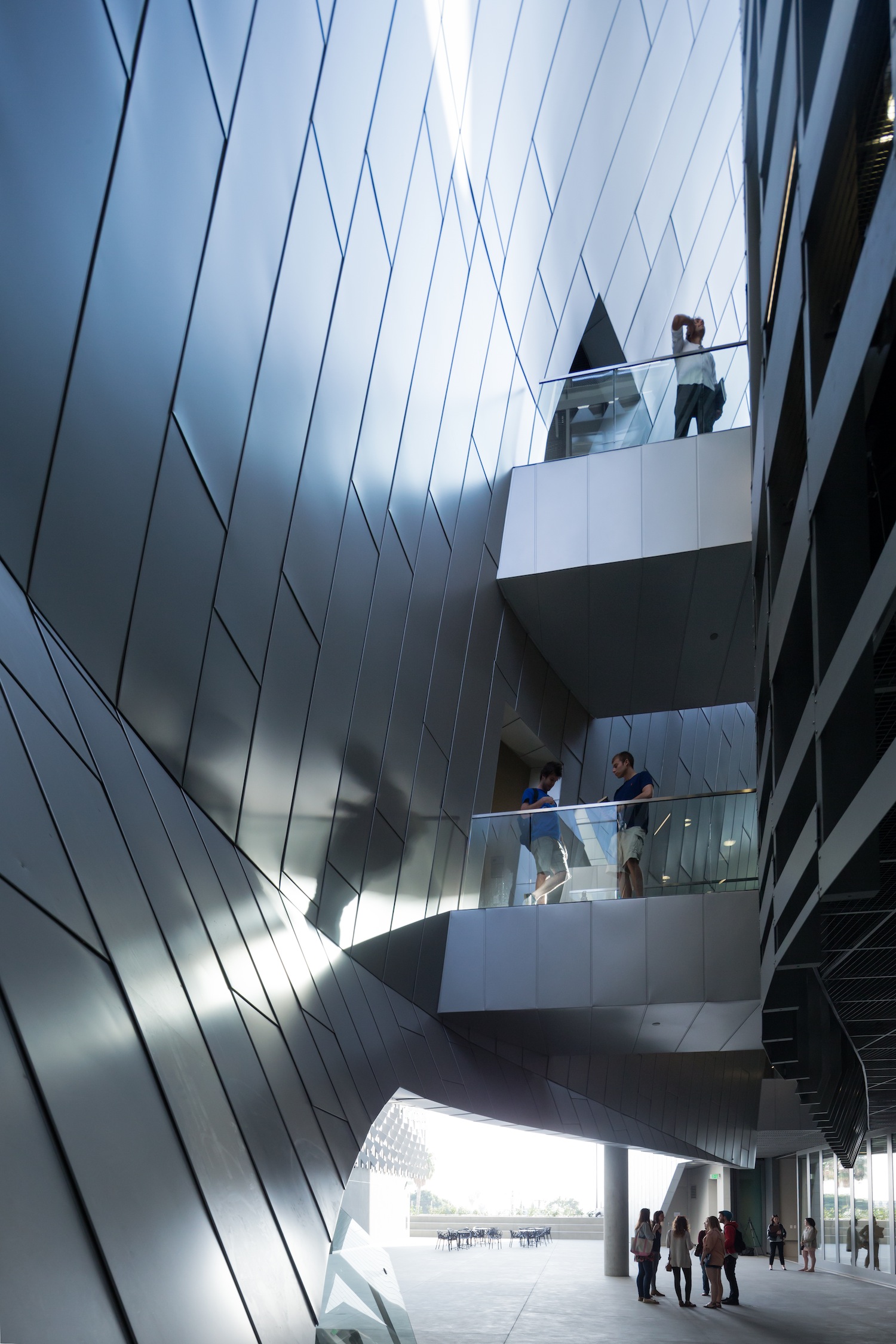
Photo: Iwan Baan - www.iwan.com / Courtesy Emerson College
Building Team
Architect: Morphosis Architects (Thom Mayne)
Structural engineer: John A. Martin Associates, Inc.
MEP engineer: Buro Happold
General contractor: Hathaway Dinwiddie Construction Company
Development consultant: Robert Silverman
Civil engineer: KPFF
IT/BIM implementation: Synthesis
Lighting consultant: Horton Lees Brogden Lighting Design, Inc.
Specifications: Technical Resources Consultants, Inc.
Theater consultant: Auerbach Pollock Friedlander
Acoustic consultant: Newson Brown Associates LLC
Audiovisual/IT consultant: Waveguide Consulting Inc.
Code/life safety consultant: Arup
Facade consultant: A. Zahner Architectural Metals; JA Weir Associates
Cost consultant: Davis Langdon
Vertical transportation: Edgett Williams Consulting Group, Inc.
Curtain wall consultant: Walters & Wolf
LEED consultant: Davis Langdon
Graphics: Follis Design
Waterproofing consultant: Independent Roofing Consultants
Geotechnical consultant: Geotechnologies Inc.
Sustainability: Davis Langdon
Landscape consultant: Katherine Spitz Associates
Architectural specifications consultant: Technical Resources Consultants, Inc.
Architectural visualization: Kilograph
Smoke control: Exponent
Exterior building maintenance: Olympique
Project Information
Cost: $85 million
Total size: 107,000 sf (70,500 sf residential; 30,100 sf instructional/administrative; 6,400 sf retail for Emerson kitchen)
Lot size: 37,351 sf
Building height: 130 feet; 10 stories
Parking: three levels of subterranean parking with 239 parking spaces
Housing: capacity for 217 students: 159 single rooms (eight are designated for resident assistants), 29 double rooms, and four faculty/staff apartments
Instructional spaces: six general purpose classrooms; computer lab; editing lab; audio lab; distance learning room; two performance studios; two dressing rooms; two study rooms; 4K screening room; large assembly room; audio post mixing suite
For more information, read Emerson's article on the Emerson LA grand opening and the LA Times report.
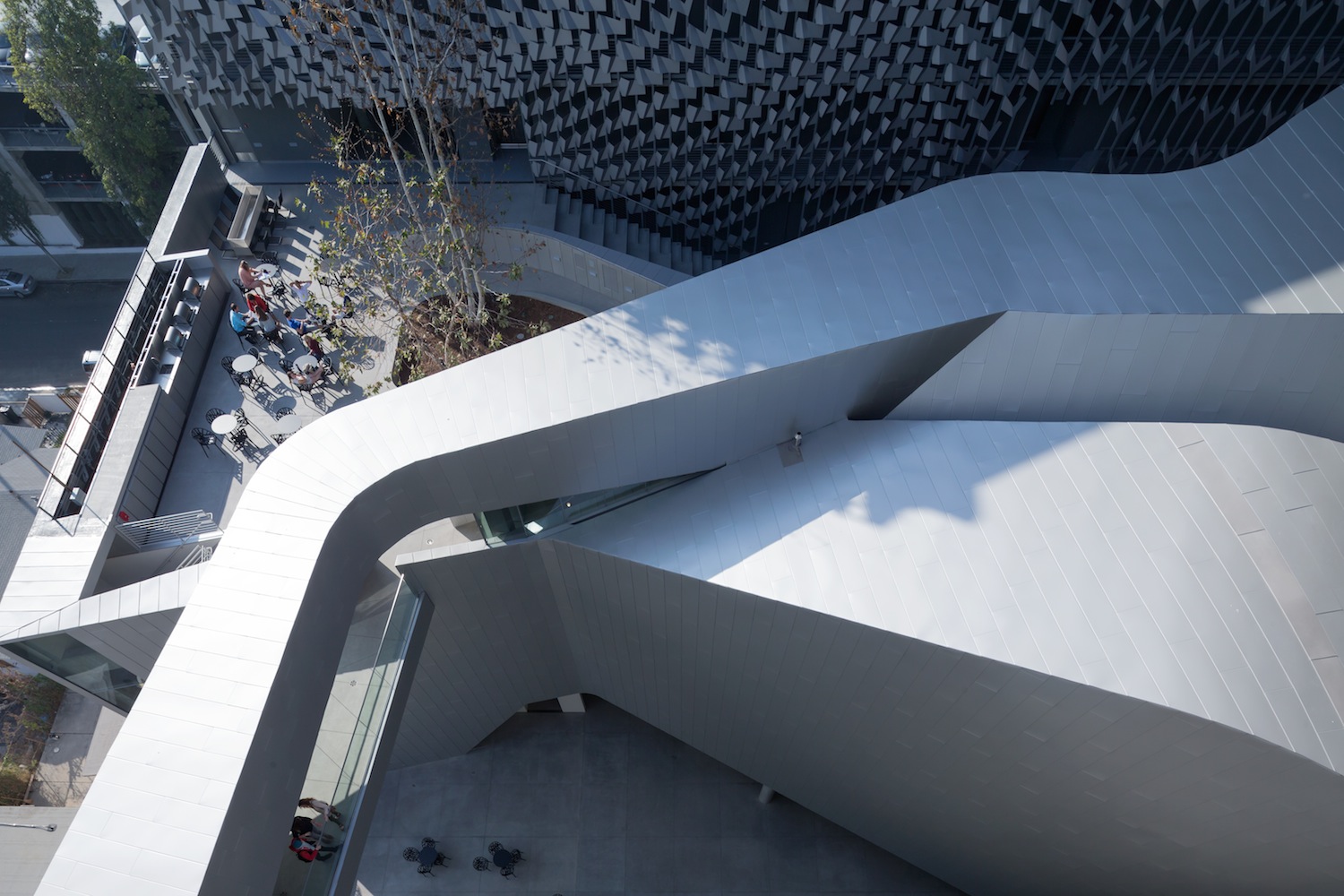
Photo: Iwan Baan - www.iwan.com / Courtesy Emerson College
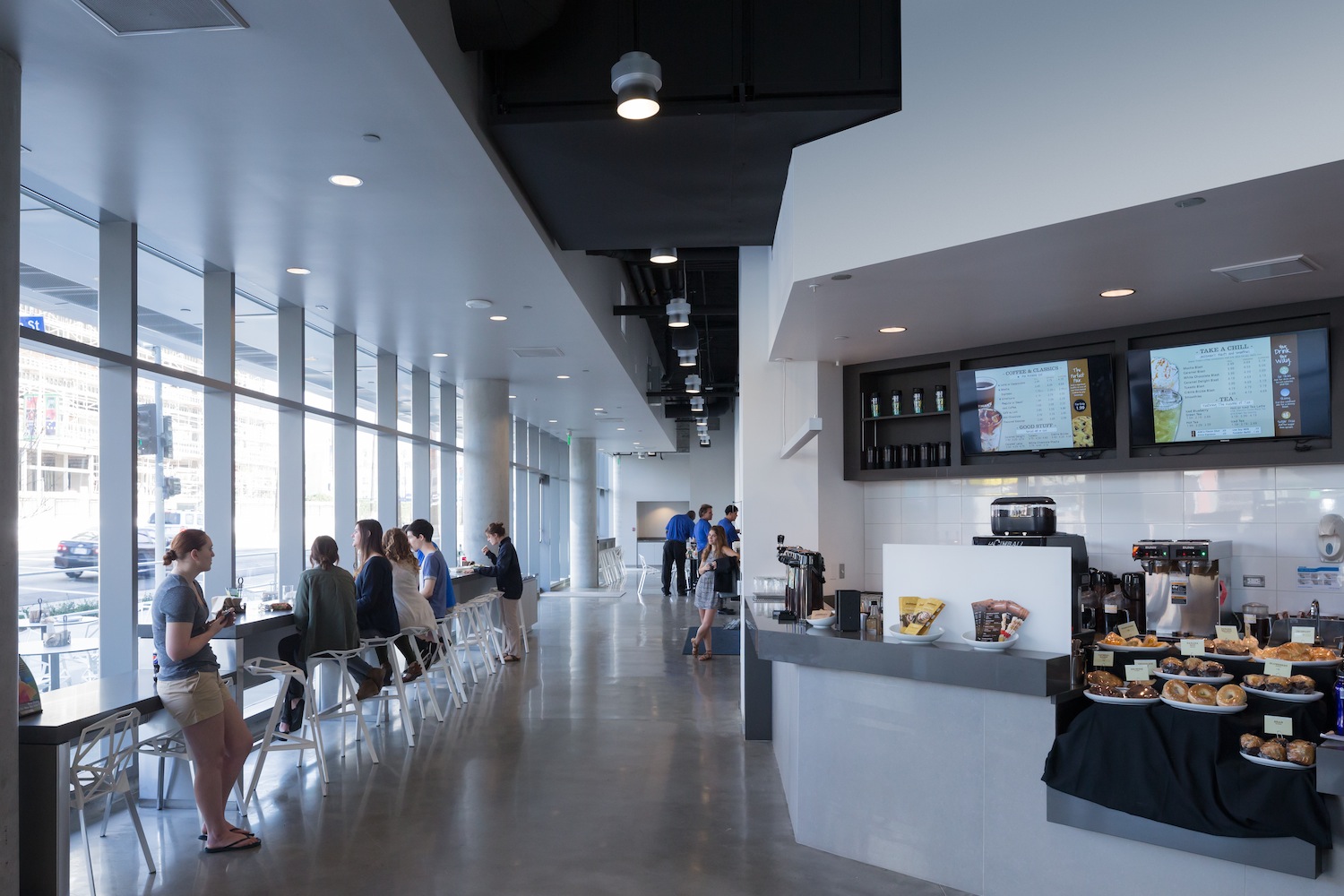
Photo: Iwan Baan - www.iwan.com / Courtesy Emerson College
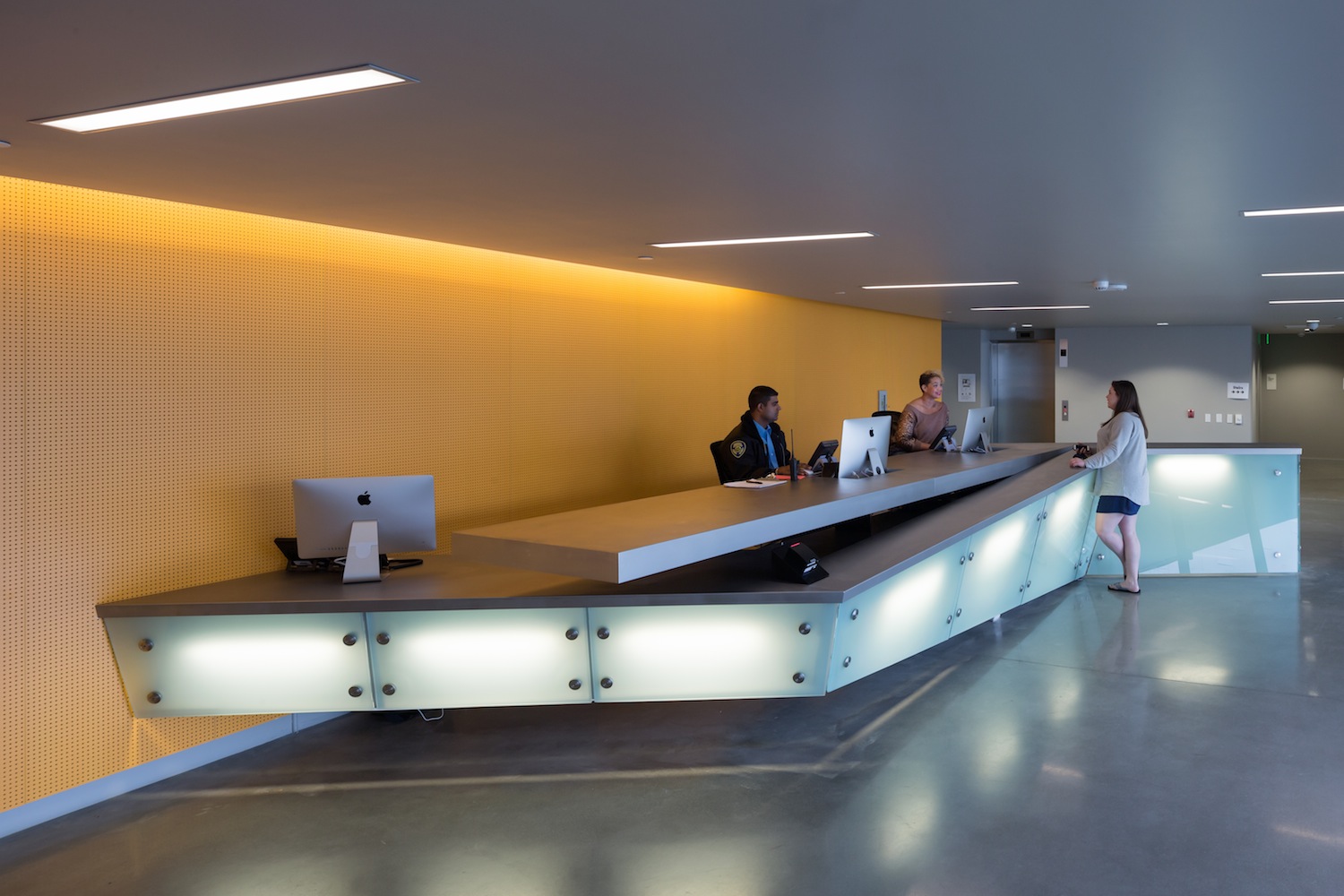
Photo: Iwan Baan - www.iwan.com / Courtesy Emerson College
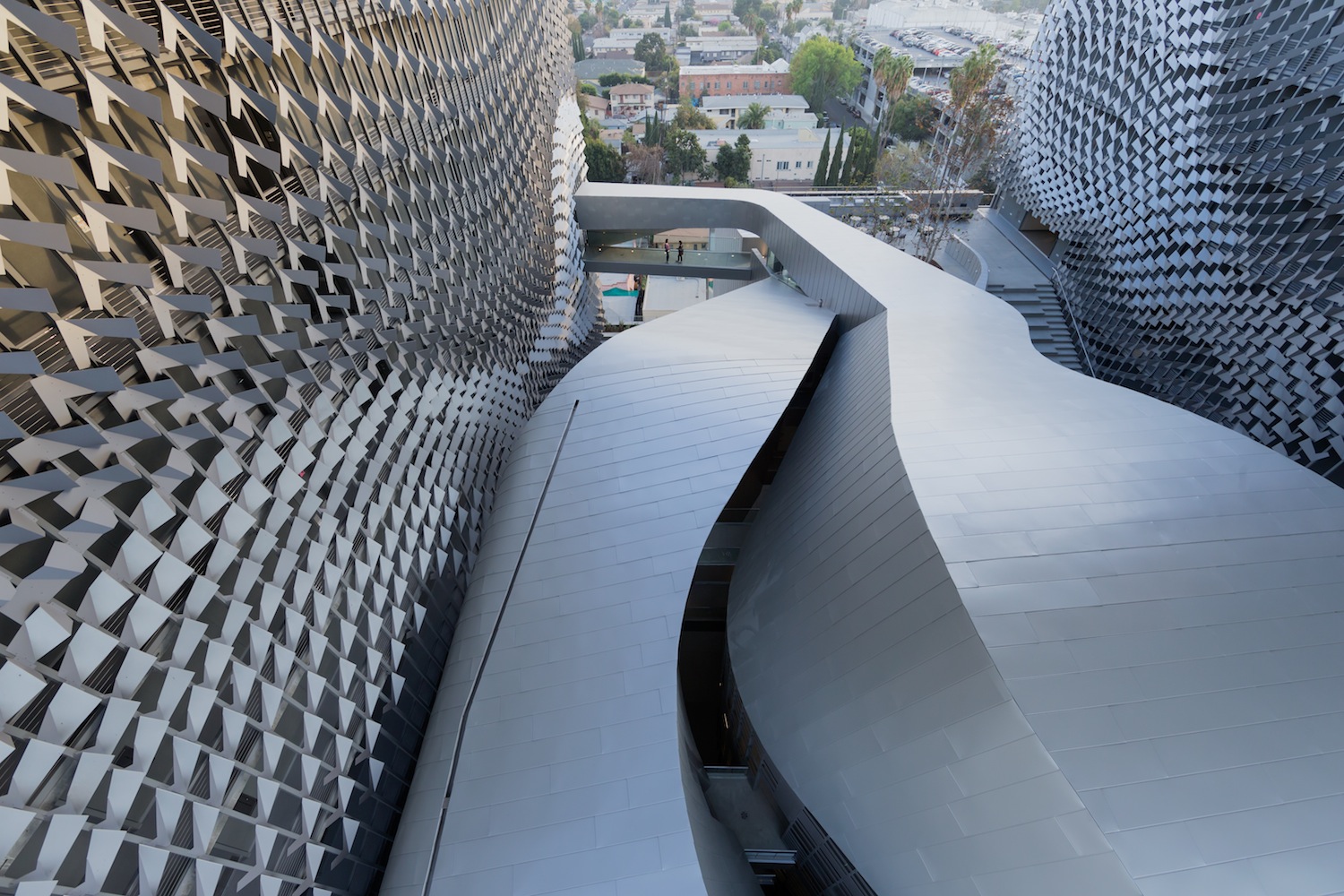
Photo: Iwan Baan - www.iwan.com / Courtesy Emerson College
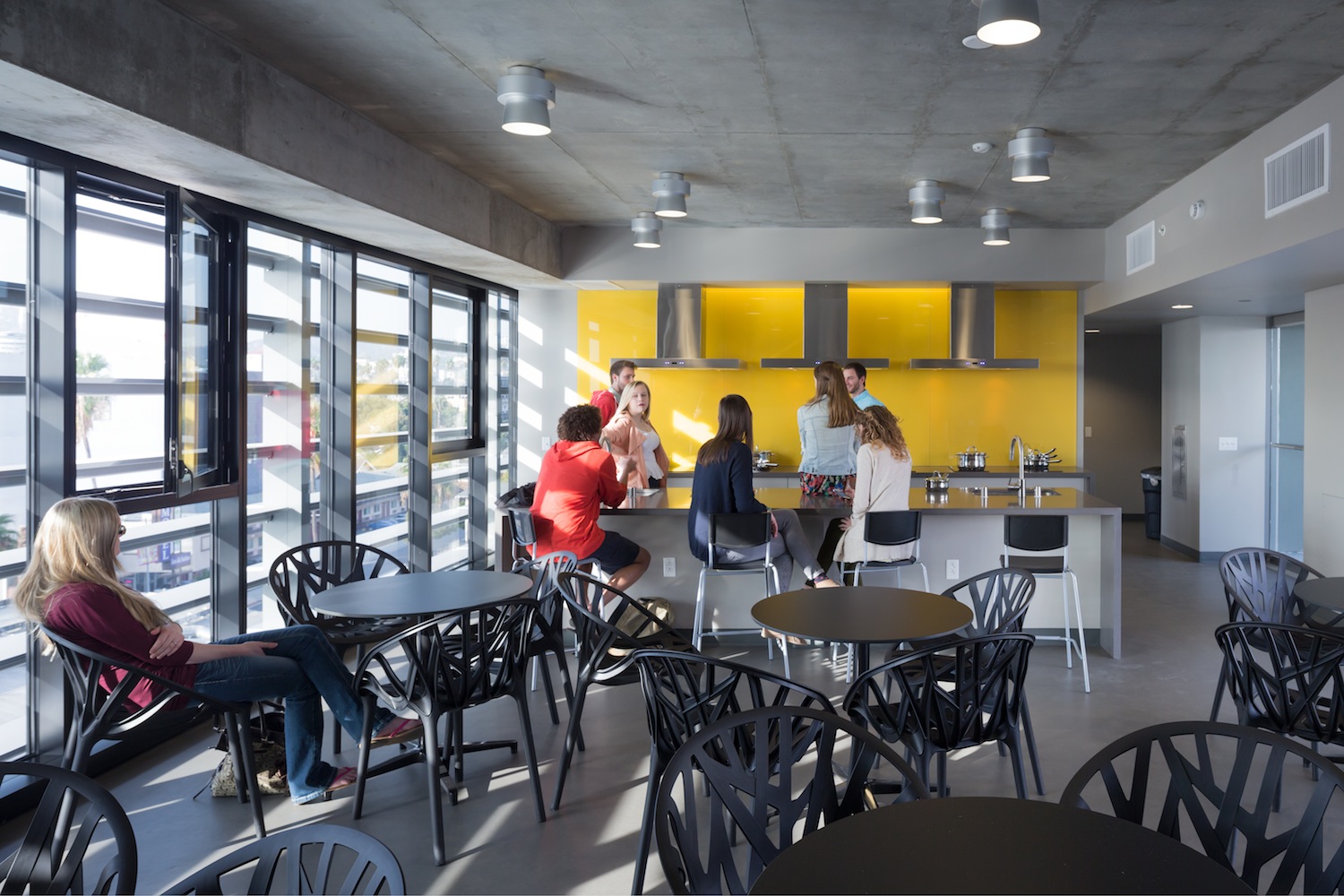
Photo: Iwan Baan - www.iwan.com / Courtesy Emerson College
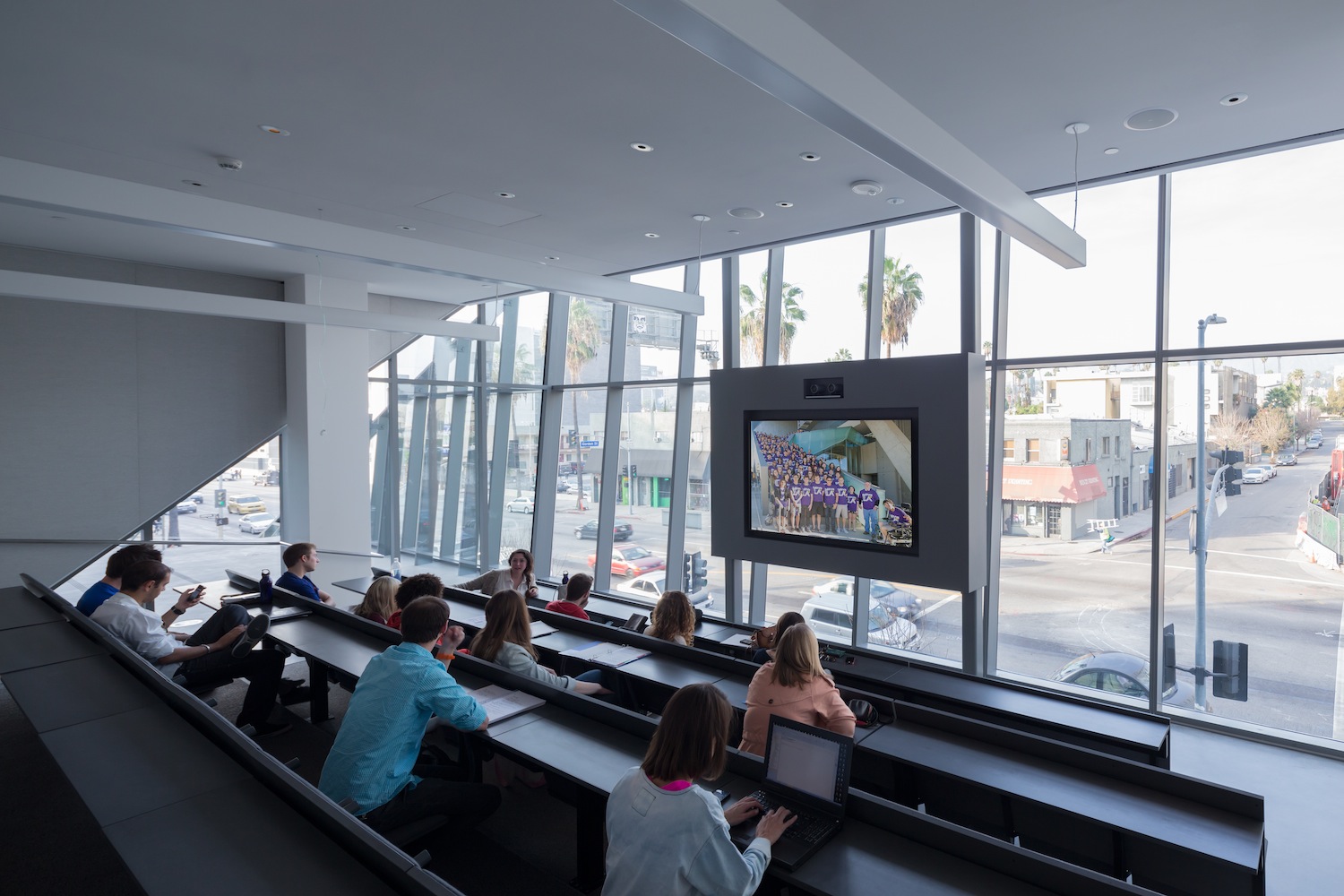
Photo: Iwan Baan - www.iwan.com / Courtesy Emerson College
Related Stories
| Jan 20, 2011
Worship center design offers warm and welcoming atmosphere
The Worship Place Studio of local firm Ziegler Cooper Architects designed a new 46,000-sf church complex for the Pare de Sufrir parish in Houston.
| Jan 20, 2011
Construction begins on second St. Louis community center
O’Fallon Park Recreation Complex in St. Louis, designed by local architecture/engineering firm KAI Design & Build, will feature an indoor aquatic park with interactive water play features, a lazy river, water slides, laps lanes, and an outdoor spray and multiuse pool.
| Jan 20, 2011
Community college to prepare next-gen Homeland Security personnel
The College of DuPage, Glen Ellyn, Ill., began work on the Homeland Security Education Center, which will prepare future emergency personnel to tackle terrorist attacks and disasters. The $25 million, 61,100-sf building’s centerpiece will be an immersive interior street lab for urban response simulations.
| Jan 19, 2011
Industrial history museum gets new home in steel plant
The National Museum of Industrial History recently renovated the exterior of a 1913 steel plant in Bethlehem, Pa., to house its new 40,000-sf exhibition space. The museum chose VOA Associates, which is headquartered in Chicago, to complete the design for the exhibit’s interior. The exhibit, which has views of five historic blast furnaces, will feature artifacts from the Smithsonian Institution to illustrate early industrial America.
| Jan 19, 2011
Baltimore mixed-use development combines working, living, and shopping
The Shoppes at McHenry Row, a $117 million mixed-use complex developed by 28 Walker Associates for downtown Baltimore, will include 65,000 sf of office space, 250 apartments, and two parking garages. The 48,000 sf of main street retail space currently is 65% occupied, with space for small shops and a restaurant remaining.
| Jan 19, 2011
Biomedical research center in Texas to foster scientific collaboration
The new Health and Biomedical Sciences Center at the University of Houston will facilitate interaction between scientists in a 167,000-sf, six-story research facility. The center will bring together researchers from many of the school’s departments to collaborate on interdisciplinary projects. The facility also will feature an ambulatory surgery center for the College of Optometry, the first of its kind for an optometry school. Boston-based firms Shepley Bulfinch and Bailey Architects designed the project.
| Jan 19, 2011
San Diego casino renovations upgrade gaming and entertainment
The Sycuan Casino in San Diego will get an update with a $27 million, 245,000-sf renovation. Hnedak Bobo Group, Memphis, Tenn., and Cleo Design, Las Vegas, drew design inspiration from the historic culture of the Sycuan tribe and the desert landscape, creating a more open space with better circulation. Renovation highlights include a new “waterless” water entry feature and new sports bar and grill, plus updates to gaming, poker, off-track-betting, retail, and bingo areas. The local office of San Francisco-based Swinerton Builders will provide construction services.
| Jan 19, 2011
Extended stay hotel aims to provide comfort of home
Housing development company Campus Apartments broke ground on a new extended stay hotel that will serve the medical and academic facilities in Philadelphia’s University City, including the University of Pennsylvania and the Children’s Hospital of Philadelphia. The 11,000-sf hotel will operate under Hilton’s Homewood Suites brand, with 136 suites with full kitchens and dining and work areas. A part of the city’s EnergyWorks loan program, the project aims for LEED with a green roof, low-flow fixtures, and onsite stormwater management. Local firms Alesker & Dundon Architects and GC L.F. Driscoll Co. complete the Building Team.
| Jan 19, 2011
New Fort Hood hospital will replace aging medical center
The Army Corps of Engineers selected London-based Balfour Beatty and St. Louis-based McCarthy to provide design-build services for the Fort Hood Replacement Hospital in Texas, a $503 million, 944,000-sf complex partially funded by the American Recovery and Reinvestment Act. The firm plans to use BIM for the project, which will include outpatient clinics, an ambulance garage, a central utility plant, and three parking structures. Texas firms HKS Architects and Wingler & Sharp will participate as design partners. The project seeks LEED Gold.
| Jan 19, 2011
Museum design integrates Greek history and architecture
Construction is under way in Chicago on the National Hellenic Museum, the nation’s first museum devoted to Greek history and culture. RTKL designed the 40,000-sf limestone and glass building to include such historic references as the covered walkway of classical architecture and the natural wood accents of Byzantine monasteries. The museum will include a research library and oral history center, plus a 3,600-sf rooftop terrace featuring three gardens. The project seeks LEED Silver.


